 With the new Chief Executive and his team having assumed office in July, all sectors of society have certain expectations in the face of a post-epidemic period. So how should the new Chief Executive and the Government balance the expectations of all sectors of society for their governance and get Hong Kong back on the right track?
With the new Chief Executive and his team having assumed office in July, all sectors of society have certain expectations in the face of a post-epidemic period. So how should the new Chief Executive and the Government balance the expectations of all sectors of society for their governance and get Hong Kong back on the right track?
Lau Siu-kai: New-term Government should Improve Level of Governance to Deal with Internal and External Challenges
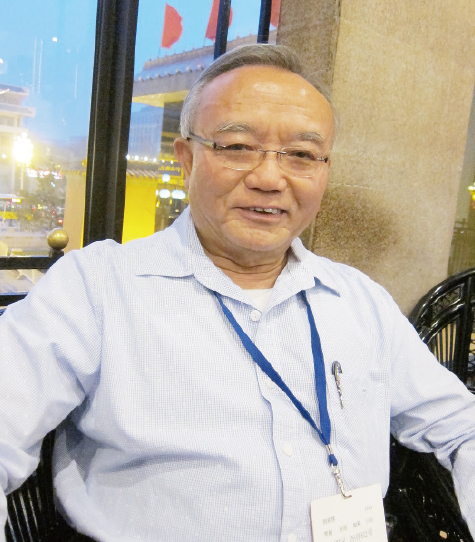
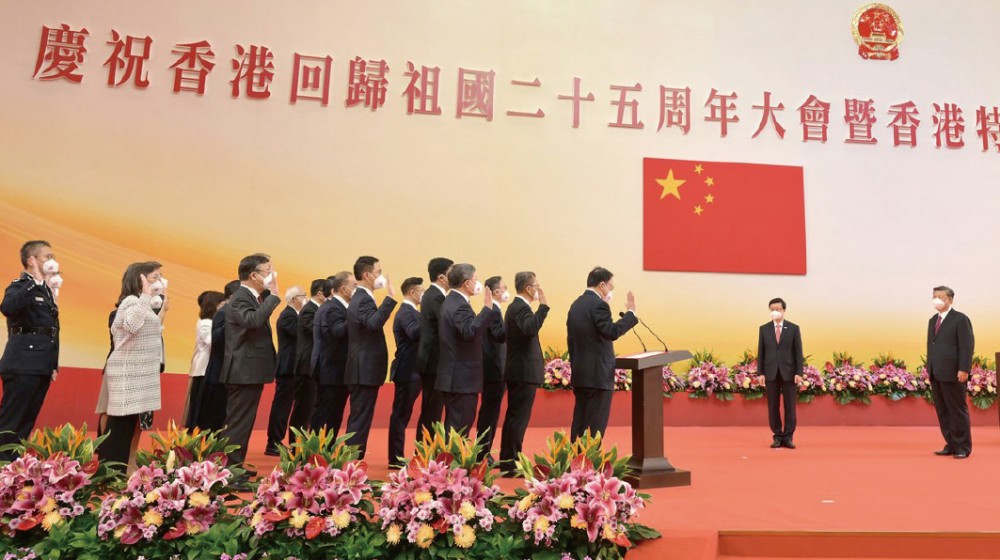 Lau Siu-kai, Vice-President of the Chinese Association of Hong Kong and Macau Studies, said that they have to face an unprecedented, complex and dangerous external environment while being in a challenging internal environment.
Lau Siu-kai, Vice-President of the Chinese Association of Hong Kong and Macau Studies, said that they have to face an unprecedented, complex and dangerous external environment while being in a challenging internal environment.
“Hong Kong and the practice of ‘One Country, Two Systems’ has entered a turning point in historical development over the past few years. The Central Government is determined to realize ‘patriots administering Hong Kong’ so that ‘One Country, Two Systems’ can advance steadily. But the sudden increase in political instability due to the COVID-19 epidemic has made governing the HKSAR an uphill battle every inch of the way.” At the international level, Lau said it is foreseeable that Hong Kong will inevitably face ever more difficulties and challenges with the western world becoming increasingly unfriendly towards it.
Build a strong leadership team
In Lau’s view, it is necessary to improve Hong Kong’s capacity and level of governance as soon as possible to properly deal with the new challenges posed by the changes in the internal and external environments. He stressed that the new Chief Executive must first form a strong leadership team. “They have to accept the Central Government’s leadership and guidance with an open mind, earnestly implement its directives, and align with it on major issues. They must also cooperate fully with the Central Government, including setting up relevant systems, formulating appropriate policies, and identifying and appointing patriots to various administrative and political positions for training and honing of experience.”
Lau believed that the past doctrine of ‘positive non-interventionism’ is outmoded, “the new team will have to ‘get things done’ on major issues in driving Hong Kong’s economic development, strengthening economic ties with the Mainland, improving people’s livelihood, and promoting the ‘homecoming of the people in both hearts and minds’, and win the confidence and trust of the Central Government and the public with actual results.”
10 suggestions for promoting the reform of HKSAR Government
To enhance governance efficiency, Lau believed that it is necessary to optimize, simplify and reform those laws, regulations, procedures, practices and institutions that hinder the government’s governance and are outdated and redundant, especially to save increasingly precious public resources.
Regarding how to concretely advance the reform of the HKSAR government and further improve its capacity and level of governance, Lau put forward 10 suggestions: 1. Improve the overall planning and coordination of various policy areas, and set clear goals for major policies; 2. Strengthen the Executive Council’s political combativeness, especially its ability to fight for a voice in the international arena; 3. Strengthen the ability of the government leadership team to lead and manage civil servants, and enhance the discipline, accountability and execution capabilities within the government; 4. Strictly enforce and improve the evaluation and appointment criteria for civil servants, and do not rank by seniority; 5. Focus on work effectiveness and governance goals, rather than pursuing “procedures”; 6. Reward innovation, reform and progress; 7. Encourage loyalty and responsibility to the country and the nation; 8. Appropriately bring in elites from the Hong Kong society, the Mainland and outside to join the top levels of the government, especially to open up the government system; 9. Strengthen strategy and policy research; 10. Establish a mechanism for assessing, issuing early warning and responding to major crises.
Strengthen the construction of district and grassroots organizations
When dealing with the fifth wave of the COVID-19 epidemic, the weakness and fragmentation of Hong Kong’s grassroots and district organizations had posed a major obstacle to the HKSAR Government’s efforts in the fight against the virus. Lau said that the new-term HKSAR Government must strengthen the construction of district and grassroots organizations to build a more solid and reliable support of the masses for the Central Government, the HKSAR Government and patriotic forces.
Lau looked forward to the new-term HKSAR Government delivering concrete results with a breath of fresh air, making new contributions to the security and development of the country and Hong Kong.
Edward Tse: Governing Team should have a Holistic View to Drive Hong Kong’s Integration into National Development
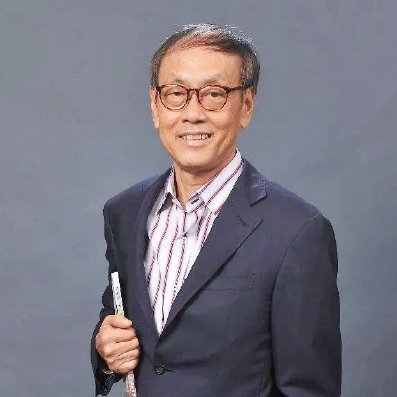
All sectors of society have certain expectations for the new government team. Edward Tse, Founder and CEO of Gao Feng Advisory Company and Advisor of Our Hong Kong Foundation, believed that Chief Executive John Lee should position Hong Kong as a “city of strategy” and ensure that policymakers develop a holistic view and build strategic thinking and planning capabilities.
President Xi Jinping has set “four expectations” for the new government of the HKSAR. Tse noted that John Lee repeatedly mentioned at several different occasions that Hong Kong government officials should develop a “holistic view” and keep the big picture in mind, which is in line with the direction of President Xi’s speech. Meanwhile, they similarly said that the HKSAR must do more, and be more strategic in its view and judgement.
Hong Kong should be positioned as a “city of strategy”
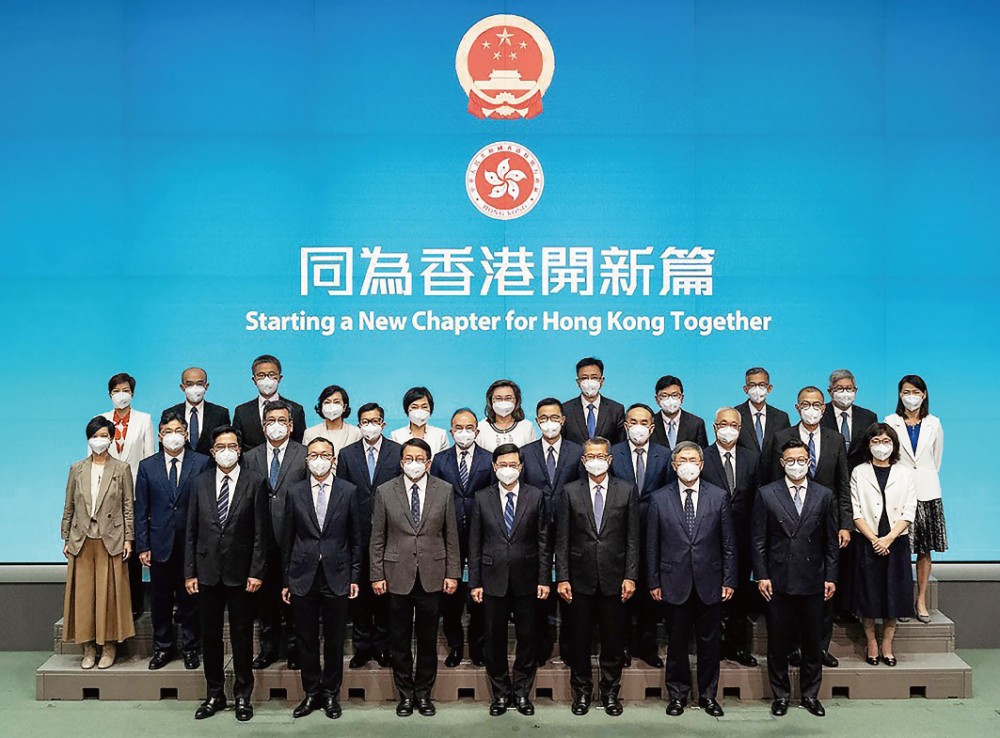 Tse said that the HKSAR Government must first and foremost get rid of the “positive non-interventionism” mindset of the past. “Lee said early last month that he would set up a ‘Chief Executive Policy Unit’ at a later date. I strongly support such a move.” Tse suggested that Lee should position Hong Kong as a “city of strategy” to strategically address Hong Kong’s internal issues, and connect with the Mainland and globally to enhance its own strengths.
Tse said that the HKSAR Government must first and foremost get rid of the “positive non-interventionism” mindset of the past. “Lee said early last month that he would set up a ‘Chief Executive Policy Unit’ at a later date. I strongly support such a move.” Tse suggested that Lee should position Hong Kong as a “city of strategy” to strategically address Hong Kong’s internal issues, and connect with the Mainland and globally to enhance its own strengths.
In view of this, Tse stressed that the new-term Government should set up a new strategic planning organization for cross-departmental coordination in formulating an integrated development strategy and action plan for the HKSAR. This new organization should have stronger integrated strategic planning capabilities. “The new strategic planning organization should help train other policy bureaus and senior government officials to strengthen their capabilities in strategic planning. Furthermore, the organization should also get involved in the planning tasks of various policy bureaus to ensure that the plans are both professional and methodological.”
Strength collaboration and communication with various non-governmental think tanks
Tse suggested that the HKSAR Government should, through this strategic planning organization, establish ties with local non-governmental think tanks to ensure close connection and communication with all sectors of society. “Likewise, the Administration should ensure effective connection and coordination with the Mainland’s strategic departments and related think tanks to effectively reflect the strategic positioning of Hong Kong, the Guangdong - Hong Kong - Macao Greater Bay Area (Greater Bay Area) and the country as a whole at the international level.”
With regard to nurturing the younger generation, Tse suggested to introduce suitable strategic thinking-related subjects in schools and provide training opportunities to students by encouraging debates and discussions to help enhance their strategic thinking capabilities.
As for international ties, Tse added that the Administration needs to form partnerships with various global think tanks to, through mutual interaction and communication, foster a more in-depth and appropriate understanding of the strategic development and planning of Hong Kong, the Greater Bay Area and the country as a whole in the international community.
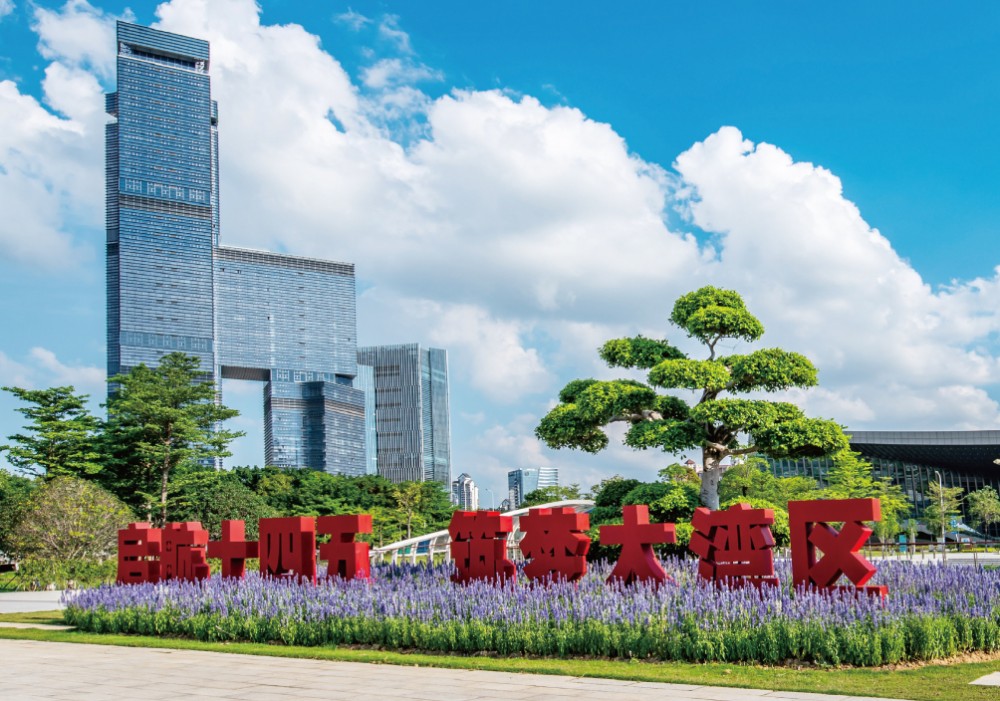
Yuen Mo: New Team Has Ability and Sense of Responsibility to Solve Multifaceted Issues
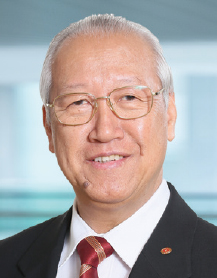 With Hong Kong’s economy greatly affected by restrictions on cross-boundary travel to/from the Mainland, Yuen Mo, the Chamber’s Chairman, hoped that the new-term Government will look into lifting these restrictions with the Mainland to facilitate business and trade ties between the two places.
With Hong Kong’s economy greatly affected by restrictions on cross-boundary travel to/from the Mainland, Yuen Mo, the Chamber’s Chairman, hoped that the new-term Government will look into lifting these restrictions with the Mainland to facilitate business and trade ties between the two places.
Yuen believed that people’s livelihood can only improve when the economy recovers. Following the two-year long epidemic, Hong Kongers wait with great anxiety for resumption of cross-boundary travel with the Mainland. Therefore, Yuen looked to the new Government discussing with the Mainland to ease cross-boundary travel restrictions in an orderly manner for the revival of various industries.
In Yuen’s view, it will not be easy for the new Government to fulfill the “four musts” and “four expectations” stated by President Xi Jinping in his important speech delivered on 1 July. Nevertheless, he believed that the new team will definitely be able to break new ground to implement President Xi’s directives. He further noted the new Chief Executive’s commendable pragmatic approach as the latter had made it clear he will tackle the housing supply problem promptly.
Yuen looked forward to the Chamber continuing its role as a bridge, serving as a non-governmental force to help the Government in connecting and communicating with the business community.
Ian Fok: Looking to New Government Identifying New Impetus for Local Economy
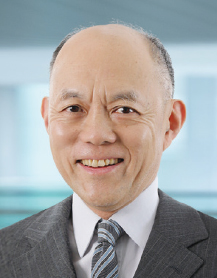 In recent years, protests over the extradition law amendment bill and the epidemic have hit Hong Kong’s economy hard and damaged its image, with cross-boundary travel restrictions further making it difficult for foreign and Mainland companies to come to Hong Kong for business development or expansion. Hence, Ian Fok, the Chamber’s Life Honorary Chairman, hoped for the new-term Government to study arrangements for cross-boundary travel as soon as possible to boost Hong Kong’s image.
In recent years, protests over the extradition law amendment bill and the epidemic have hit Hong Kong’s economy hard and damaged its image, with cross-boundary travel restrictions further making it difficult for foreign and Mainland companies to come to Hong Kong for business development or expansion. Hence, Ian Fok, the Chamber’s Life Honorary Chairman, hoped for the new-term Government to study arrangements for cross-boundary travel as soon as possible to boost Hong Kong’s image.
Fok further said that as the national “14th Five-Year” Plan has provided a clear orientation for the future direction of Hong Kong’s development, he looked to the new Government actively integrating into national development. In his view, Hong Kong should consolidate and enhance the strengths of traditional industries on the one hand, and develop innovative industries on the other. Citing the “Nansha Plan” as an example, he noted that the plan attracts innovation and technology (I&T) talents to Nansha for further career development, so Hong Kong should also think about how to make a dash to catch up in the field of I&T.
Fok is confident that the new government team, which boasts a pool of outstanding talents and elites, will make a difference going forward. As a member of the Chamber, he hoped that it will continue to assist the Government in reaching out to the business community.

Jonathan Choi: Follow President Xi’s Directives to Address Deep-Seated Problems
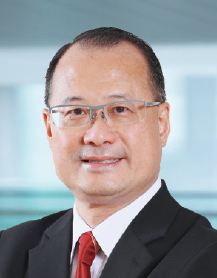 With President Xi Jinping stating personally in Hong Kong the long-term adherence to “One Country, Two Systems”, Jonathan Choi, the Chamber’s Permanent Honorary President, hopes for the new Chief Executive and his Administration to faithfully implement President Xi’s “four musts” and leverage the institutional strengths of “One Country, Two Systems”.
With President Xi Jinping stating personally in Hong Kong the long-term adherence to “One Country, Two Systems”, Jonathan Choi, the Chamber’s Permanent Honorary President, hopes for the new Chief Executive and his Administration to faithfully implement President Xi’s “four musts” and leverage the institutional strengths of “One Country, Two Systems”.
Choi noted that Hong Kong’s many deep-seated economic and livelihood issues have not been resolved. Therefore, he believes that everyone in Hong Kong needs to work in concert to focus on dealing with issues regarding housing, education, healthcare, the difficulty of upward mobility for young people, and the ageing of Hong Kong’s population. He further pointed out that Hong Kong must make breakthroughs in terms of internal and external cross-boundary travel and the restoration of Hong Kong’s international image.
Choi is convinced that the new-term Government has an outstanding track record in strong execution capabilities and determination, so he has high hopes for their efforts. As a representative of the business community, he hopes that the Government will continue to push forward the development of the Greater Bay Area, implement the Northern Metropolis development strategy, and stimulate the port economic belt, providing new engines for Hong Kong's development.
Charles Yeung: Address Housing and Youth Issues with the Country’s Support Policies
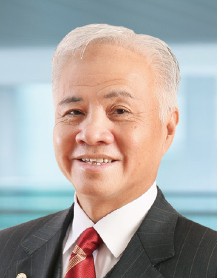 It has been difficult for Hong Kong to solve its housing problem for many years. Charles Yeung, the Chamber’s Life Honorary Chairman, believes that Hong Kong’s housing and youth issues have to be urgently dealt with currently. He hopes that the newly inaugurated Government could ease the housing problem as soon as possible. In addition, it must create more upward mobility opportunities for young people.
It has been difficult for Hong Kong to solve its housing problem for many years. Charles Yeung, the Chamber’s Life Honorary Chairman, believes that Hong Kong’s housing and youth issues have to be urgently dealt with currently. He hopes that the newly inaugurated Government could ease the housing problem as soon as possible. In addition, it must create more upward mobility opportunities for young people.
Yeung has high hopes for the new-term Government. He hopes to see the new team working in unity to gradually solve Hong Kong’s deep-seated problems. As the developments of Hong Kong and our country are closely related, Yeung hopes that the new-term Government could leverage the Central Government’s policies in support of the HKSAR to spearhead Hong Kong’s further integration into national development. He also looks forward to the new-term Government continuing to support the development of innovation and technology (I&T) industries, enhance Hong Kong’s competitiveness, and consolidate its status as an international financial, shipping and trading center, injecting a steady stream of impetus into the local economy.

Ricky Tsang: Young Entrepreneurs Need to See there are Bright Prospects Ahead
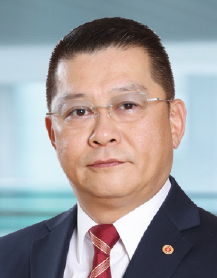 Ricky Tsang, the Chamber’s Vice-Chairman, noted that while resumption of cross-boundary travel is something everyone is awaiting expectantly, we should also pay close attention to young people who are similarly affected by the epidemic.
Ricky Tsang, the Chamber’s Vice-Chairman, noted that while resumption of cross-boundary travel is something everyone is awaiting expectantly, we should also pay close attention to young people who are similarly affected by the epidemic.
The sudden onset of the epidemic has added uncertainty to the prospects for young entrepreneurs. Amid the current challenges, Tsang hoped that the new-term Government can provide more support for youth entrepreneurship and I&T industries, and leverage the strengths of the Greater Bay Area and hold more relevant exchanges with the Mainland to create opportunities so that young people can see a promising future ahead of them.
Tsang is certain that the new-term Government, given widespread recognition, is set to work collectively to resolve the various issues and be closer to public sentiments and opinions with their governance. He looked to the new-term Government promoting Hong Kong more to revive its international image.
Tsang also hoped for the Chamber to work in concert with the new-term Government and make policy suggestions more frequently on behalf of the business community.
Connie Wong: The New Governing Team is Pragmatic and Capable
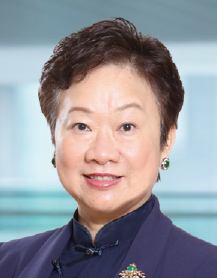 Connie Wong, the Chamber’s Vice-Chairman commends the “result-oriented approach” advocated by now Chief Executive John Lee during his election campaign. She believes this pragmatic direction is posed to help Hong Kong resolve certain long-standing problems.
Connie Wong, the Chamber’s Vice-Chairman commends the “result-oriented approach” advocated by now Chief Executive John Lee during his election campaign. She believes this pragmatic direction is posed to help Hong Kong resolve certain long-standing problems.
Wong sees a galaxy of talents in the new governing team. For example, the new Secretary for Home and Youth Affairs Alice Mak has been working on district and community affairs for a very long time. The thorough understanding on the medical policies in Hong Kong and the Mainland of the Secretary for Health Lo Chung-mau, on the other hand, would be a true asset for the government’s formulation of anti-pandemic policies.
Wong added that problems with quarantine-free travelling between Hong Kong and the Mainland must be resolved urgently, as they affect not only economic development but also family reunions and livelihood issues. For example, some Hong Kong citizens now residing in the Mainland must come back for medical care, and Hong Kong youth are struggling to embark on their exchange and work in the Mainland.
Fortunately, Lo acted swiftly after taking office. He has rolled out real-name registration for the LeaveHomeSafe app, introducing a colored health code display mechanism, etc. Hopefully, these measures could pave way for relaxing quarantine restrictions.
Tommy Li: Looking Forward to New Government Promoting Integrated TCM Development in Both Places
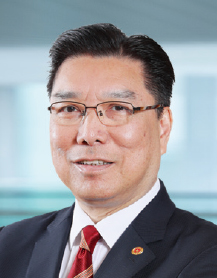 Tommy Li, the Chamber’s Vice-Chairman, expects the many experienced professionals in the new government team to bring diversified and professional opinions from different fields to future policies. In addition, the experience of the elites who have joined the new team from the civil service will help the various policies get implemented in an orderly and swift manner.
Tommy Li, the Chamber’s Vice-Chairman, expects the many experienced professionals in the new government team to bring diversified and professional opinions from different fields to future policies. In addition, the experience of the elites who have joined the new team from the civil service will help the various policies get implemented in an orderly and swift manner.
As a member of the traditional Chinese medicine (TCM) industry, Li looks forward to Secretary of Health Lo Chung-mau vigorously promoting the integrated development of TCM in the Mainland and Hong Kong. He also looks forward to the new-term Government focusing on addressing issues such as the fight against the COVID-19 epidemic, youth education, and cross-boundary travel between the Mainland and Hong Kong. He noted that the business community is very concerned about issues such as the business environment and tax incentives.
In Li’s view, the new government team is pragmatic and grounded, as well as having strong execution capabilities, so he looks forward to the team proactively resolving Hong Kong’s long-standing difficult problems. He further noted that Hong Kong will surely return to prosperity and achieve long-term stable development if it leverages the strengths of “One Country, Two Systems”.
Johnny Yu: Administrative Effectiveness to be Lifted by Enhanced Coordination
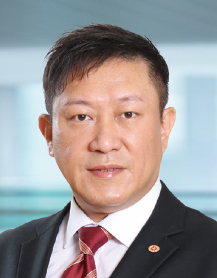 Johnny Yu, the Chamber’s Vice-Chairman notes quite many problems to be resolved in Hong Kong. Fundamentally, solutions must begin from the government’s system. “The government must urgently address the inadequate coordination and division of work among departments. Problems must be tackled one by one using a result-oriented approach.”
Johnny Yu, the Chamber’s Vice-Chairman notes quite many problems to be resolved in Hong Kong. Fundamentally, solutions must begin from the government’s system. “The government must urgently address the inadequate coordination and division of work among departments. Problems must be tackled one by one using a result-oriented approach.”
He proposes to streamline overlapped processes among government departments. For cross-departmental collaboration, involved departments may try to establish a clear mechanism and strengthen co-ordination. Outdated laws should be amended or optimized.
Yu frankly regarded anti-pandemic measures as the more imminent issue. “For more than two years, the exchange between Hong Kong and the Mainland has been seriously restricted. Our youth needs Chinese Mainland exposure to integrate into national development. Theories must be put into practice.”
Yu thinks that Hong Kong shall take steps to review on shortening the quarantine time or supplement the measures with home quarantine. The Hong Kong society should be allowed to return to their normal way of living as soon as practicable.
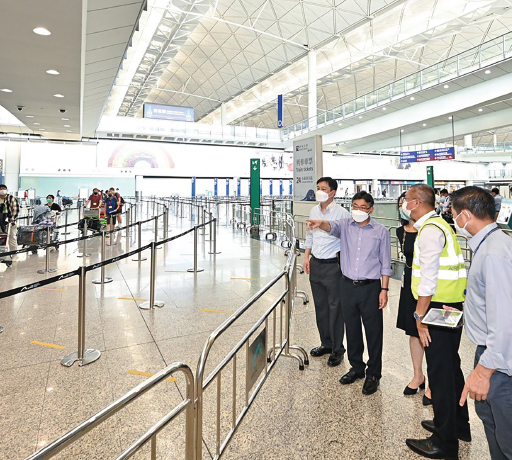
Herman Hu: New Government Should be More Transparent in Governance
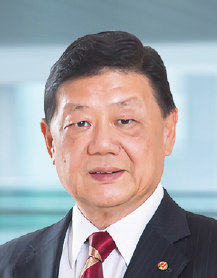 Herman Hu, the Chamber’s Vice-Chairman, suggested that the Government should strive to resume cross-boundary travel with the Mainland as early as possible to revitalize the Hong Kong economy, and address the “subdivided flats” and “cage homes” issues as soon as possible. It should also strengthen long-term policy research and cross-departmental collaboration to conduct in-depth analysis of online and offline public opinions in order to reduce biases and blind spots.
Herman Hu, the Chamber’s Vice-Chairman, suggested that the Government should strive to resume cross-boundary travel with the Mainland as early as possible to revitalize the Hong Kong economy, and address the “subdivided flats” and “cage homes” issues as soon as possible. It should also strengthen long-term policy research and cross-departmental collaboration to conduct in-depth analysis of online and offline public opinions in order to reduce biases and blind spots.
In addition, he suggested that the Government should increase policy transparency and attach importance to explaining new policies, while strengthening communication with the media so that policy information can be disseminated uniformly and accurately.
Looking ahead, he believed that Hong Kong should make good use of its existing international facilities and strive to host more international conferences and sports events, as well as other international events. Moreover, it should speed up smart city development to improve social efficiency.
Hu also pointed out that Hong Kong should nurture young people to become future pillars who love both the country and Hong Kong, creating more upward mobility opportunities and making it easier for them to showcase their strengths in the Greater Bay Area.
Rock Chen: New Team Unveils a New Style of Governance
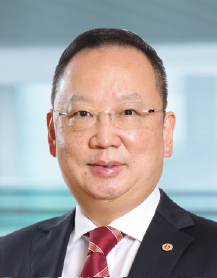 Rock Chen, the Chamber’s Vice-Chairman, noted that new Chief Executive John Lee, barely one week in office, had taken the initiative to attend the Legislative Council Q&A session, and promptly set up four working groups to tackle various urgent issues, demonstrating a new style of governance.
Rock Chen, the Chamber’s Vice-Chairman, noted that new Chief Executive John Lee, barely one week in office, had taken the initiative to attend the Legislative Council Q&A session, and promptly set up four working groups to tackle various urgent issues, demonstrating a new style of governance.
Chen pointed out that land and housing supply issues need to be addressed most urgently. “The average waiting time for public housing has increased to a record of over six years, which is not what the public is happy to see. The Government should simplify the housing construction process and increase land supply.”
Chen further said that the impact of the epidemic of the past two years on various industries has gradually emerged: Foreign talents cannot come in while there is a brain drain of local talents, and Hong Kong’s airport is largely deserted. He worried that Hong Kong’s status as an international financial center and an international aviation hub would be hit hard if this continues. “Fortunately, Secretary of Health Lo Chung-mau has begun efforts to improve the situation immediately after taking office.” Chen is convinced that the new-term Government is capable of solving Hong Kong’s deep-seated problems.
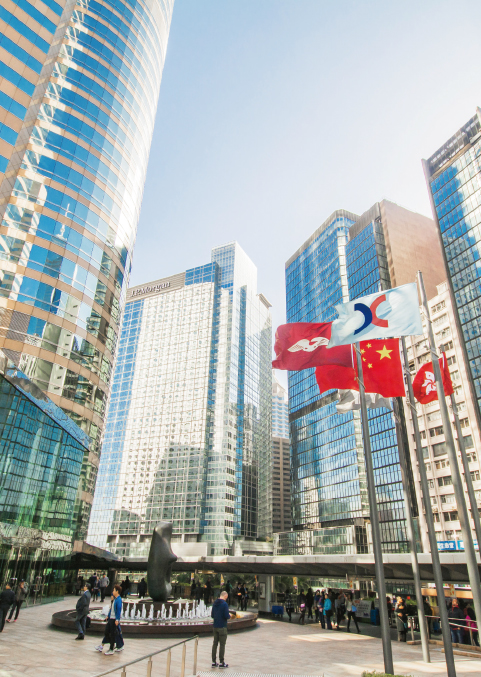
Tse Yung-hoi: Strive to Make Hong Kong’s Progress from Stability to Prosperity a Reality
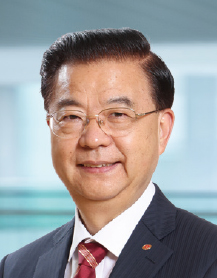 Tse Yung-hoi, the Chamber’s Vice-Chairman, has high hopes for the new-term Government and believed that Hong Kong can focus on three aspects for future development. Firstly, Hong Kong must formulate specific plans and relevant industrial policies for the Northern Metropolis as soon as possible to diversify the industrial structure, give more development opportunities for young people, and attract more international scientific and technological talents.
Tse Yung-hoi, the Chamber’s Vice-Chairman, has high hopes for the new-term Government and believed that Hong Kong can focus on three aspects for future development. Firstly, Hong Kong must formulate specific plans and relevant industrial policies for the Northern Metropolis as soon as possible to diversify the industrial structure, give more development opportunities for young people, and attract more international scientific and technological talents.
Secondly, Hong Kong has seen its stock market develop considerably since returning to the motherland, making the city the third largest international financial center in the world. Going forward, it should focus on expanding the content of cross-boundary financial products with the Mainland, enticing more foreign companies to get listed in Hong Kong, and improving the financial ecological environment.
Tse believed that for Hong Kong, further integration into the Greater Bay Area is a development opportunity definitely not to be missed. This will not only enhance the country’s global competitiveness, but also expand Hong Kong’s space for development and improve people’s livelihood, truly achieving progress from stability to prosperity.
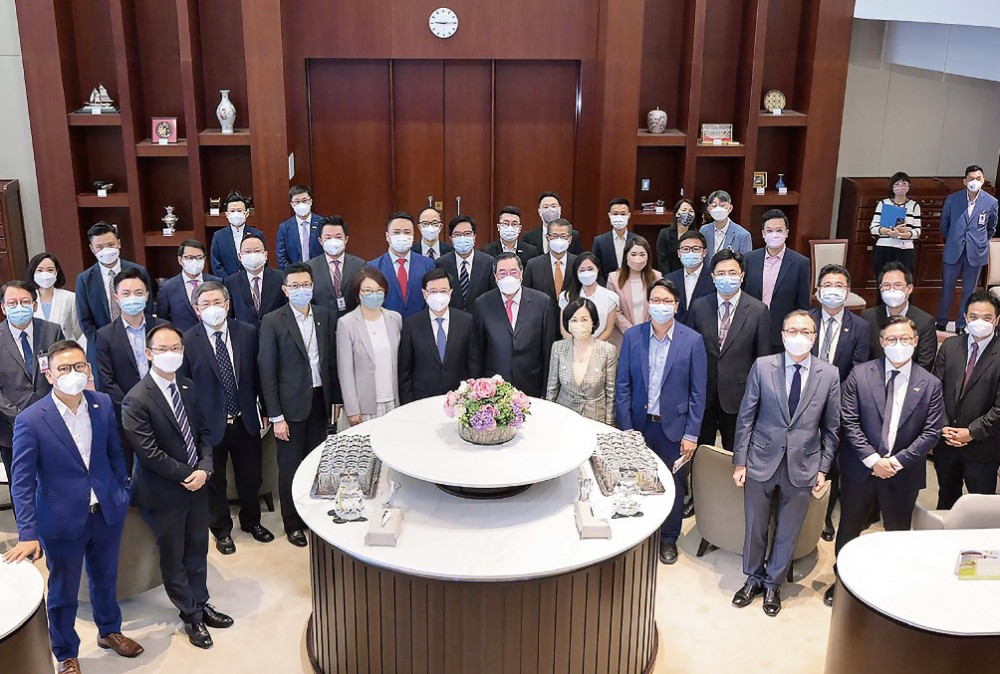
Charles Cheung: Implement “Discussion-Decision-Action” Political Culture
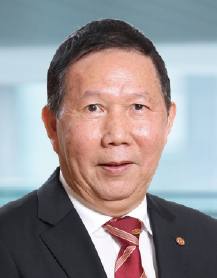 Charles Cheung, the Chamber’s Vice-Chairman, said that as it still difficult to travel between Hong Kong and the Mainland due to the limited travel quota, he hoped the Government could continue working with the Mainland to provide convenience for those who need to travel to and from the Mainland. Meanwhile, it should consider “point-to-point” quarantine-free cross-boundary travel with the Mainland, initially using the Greater Bay Area as a pilot area.
Charles Cheung, the Chamber’s Vice-Chairman, said that as it still difficult to travel between Hong Kong and the Mainland due to the limited travel quota, he hoped the Government could continue working with the Mainland to provide convenience for those who need to travel to and from the Mainland. Meanwhile, it should consider “point-to-point” quarantine-free cross-boundary travel with the Mainland, initially using the Greater Bay Area as a pilot area.
In his view, the new Government has accomplished a lot in this regard since taking office, which is commendable. He looked forward to the new governing team bringing the new political culture of ‘discussion-decision-action’ (i.e., making a decision when the discussion is done, and undertaking an action when the decision is made) into all matters so that Hong Kong can completely return to normal.
He also looked forward to the new-term Government creating a safer and more stable business environment for companies and investors to actively integrate into the development of the Greater Bay Area, and providing more support for Hong Kong businesses to invest, operate and expand in the Mainland.




